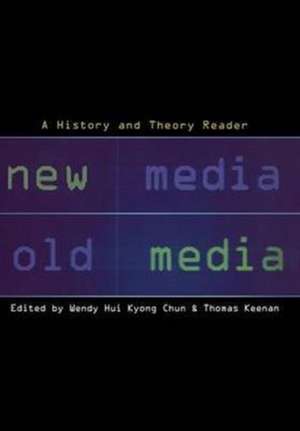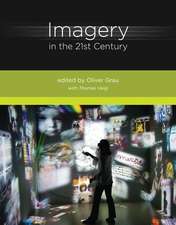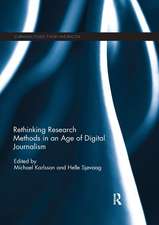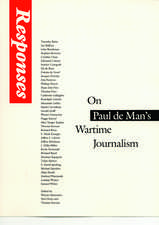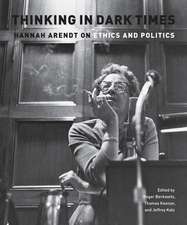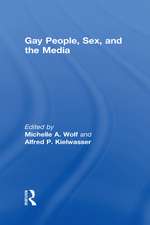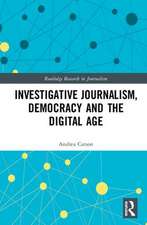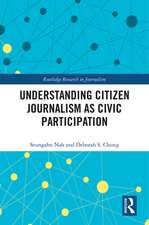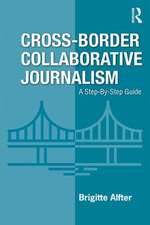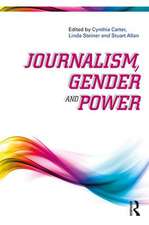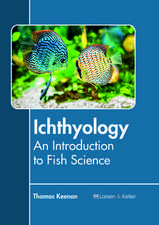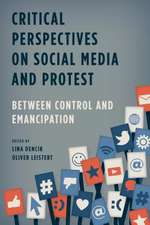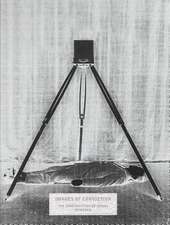New Media, Old Media: A History and Theory Reader
Editat de Wendy Hui Kyong Chun, Thomas Keenanen Limba Engleză Hardback – 5 feb 2016
New Media, Old Media is a foundational text for general readers, students, and scholars of new media across the disciplines. It is essential reading for anyone interested in understanding the cultural impact of new media.
| Toate formatele și edițiile | Preț | Express |
|---|---|---|
| Paperback (1) | 501.77 lei 6-8 săpt. | |
| Taylor & Francis – 15 noi 2005 | 501.77 lei 6-8 săpt. | |
| Hardback (1) | 772.76 lei 6-8 săpt. | |
| Taylor & Francis – 5 feb 2016 | 772.76 lei 6-8 săpt. |
Preț: 772.76 lei
Preț vechi: 1244.39 lei
-38% Nou
Puncte Express: 1159
Preț estimativ în valută:
147.86€ • 154.80$ • 122.35£
147.86€ • 154.80$ • 122.35£
Carte tipărită la comandă
Livrare economică 05-19 aprilie
Preluare comenzi: 021 569.72.76
Specificații
ISBN-13: 9781138134911
ISBN-10: 1138134910
Pagini: 432
Ilustrații: 65
Dimensiuni: 178 x 254 mm
Greutate: 0.93 kg
Ediția:1
Editura: Taylor & Francis
Colecția Routledge
Locul publicării:Oxford, United Kingdom
ISBN-10: 1138134910
Pagini: 432
Ilustrații: 65
Dimensiuni: 178 x 254 mm
Greutate: 0.93 kg
Ediția:1
Editura: Taylor & Francis
Colecția Routledge
Locul publicării:Oxford, United Kingdom
Cuprins
Introduction: Did Somebody Say New Media? Wendy Hui Kyong Chun
Part I: The Archaeology of New Media
1. Early Film History and Multi-Media: An Archaeology of Possible Futures? Thomas Elsaesser
2. Electricity Made Visible, Geoffrey Batchen
3. "Tones from out of Nowhere": Rudolph Pfenninger and the Archaeology of Synthetic Sound, Thomas Y. Levin
Part II: Archives
4. Memex Revisited, Vannevar Bush
5. Out of File, Out of Mind, Cornelia Vismann
6. Dis/continuities: Does the Archive Become Metephorical in Multi-Media Space? Wolfgang Ernst
7. Breaking Down: Godard's Histories, Richard Dienst
8. Ordering Law, Judging History: Deliberations on Court TV, Lynne Joyrich
Part III: Power-Code
9. The Style of Sources: Remarks on the Theory and History of Programming, Wolfgang Hagen
10. Science as Open Source Process, Friedrich Kittler
11. Cold War Networks or Kaiserstr. 2, Neubabelsberg, Friedrich Kittler
12. Protocol vs. Institutionalizaion, Alexander R. Galloway
13. Reload: Liveness, Mobility, and the Web, Tara McPherson
14. Generation Flash, Lev Manovich
15. Viruses Are Good for You, Julian Dibbell
16. The Imaginary of the Artificial: Automata, Models, Machinics--On Promiscuous Modeling as Precondition for Poststructuralist Ontology, Anders Michelsen
Part IV: Network Events
17. Information, Crisis, Catastrophe, Mary Ann Doane
18. The Weird Global Media Event and the Tactical Intellectural [version 3.0], McKenzie Wark
19. Imperceptible Perceptions in our Technological Modernity, Arvind Rajagopal
20. Deep Europe: A History of the Syndicate Network, Geert Lovink
21. The Cell Phone and the Crowd: Messianic Politics in the Contemporary Philippines, Vicente L. Rafael
Part V: Theorizing "New" Media
22. Cybertyping and the Work of Race in the Age of Digital Reproduction, Lisa Nakamura
23. Network Subjects: or, The Ghost is the Message, Nicholas Mirzoeff
24. Modes of Digital Identification: Virtual Technologies and Webcam Cultures, Ken Hillis
25. Hypertext Avant La Lettre, Peter Krapp
26. Network Fever, Mark Wigley
Afterword: The Demystifica-hic-tion of In-hic-formation, Thomas Keenan
Part I: The Archaeology of New Media
1. Early Film History and Multi-Media: An Archaeology of Possible Futures? Thomas Elsaesser
2. Electricity Made Visible, Geoffrey Batchen
3. "Tones from out of Nowhere": Rudolph Pfenninger and the Archaeology of Synthetic Sound, Thomas Y. Levin
Part II: Archives
4. Memex Revisited, Vannevar Bush
5. Out of File, Out of Mind, Cornelia Vismann
6. Dis/continuities: Does the Archive Become Metephorical in Multi-Media Space? Wolfgang Ernst
7. Breaking Down: Godard's Histories, Richard Dienst
8. Ordering Law, Judging History: Deliberations on Court TV, Lynne Joyrich
Part III: Power-Code
9. The Style of Sources: Remarks on the Theory and History of Programming, Wolfgang Hagen
10. Science as Open Source Process, Friedrich Kittler
11. Cold War Networks or Kaiserstr. 2, Neubabelsberg, Friedrich Kittler
12. Protocol vs. Institutionalizaion, Alexander R. Galloway
13. Reload: Liveness, Mobility, and the Web, Tara McPherson
14. Generation Flash, Lev Manovich
15. Viruses Are Good for You, Julian Dibbell
16. The Imaginary of the Artificial: Automata, Models, Machinics--On Promiscuous Modeling as Precondition for Poststructuralist Ontology, Anders Michelsen
Part IV: Network Events
17. Information, Crisis, Catastrophe, Mary Ann Doane
18. The Weird Global Media Event and the Tactical Intellectural [version 3.0], McKenzie Wark
19. Imperceptible Perceptions in our Technological Modernity, Arvind Rajagopal
20. Deep Europe: A History of the Syndicate Network, Geert Lovink
21. The Cell Phone and the Crowd: Messianic Politics in the Contemporary Philippines, Vicente L. Rafael
Part V: Theorizing "New" Media
22. Cybertyping and the Work of Race in the Age of Digital Reproduction, Lisa Nakamura
23. Network Subjects: or, The Ghost is the Message, Nicholas Mirzoeff
24. Modes of Digital Identification: Virtual Technologies and Webcam Cultures, Ken Hillis
25. Hypertext Avant La Lettre, Peter Krapp
26. Network Fever, Mark Wigley
Afterword: The Demystifica-hic-tion of In-hic-formation, Thomas Keenan
Notă biografică
Wendy Hui Kyong Chun is Assistant Professor of Modern Culture and Media at Brown University.
Thomas W. Keenan is Associate Professor of Comparative Literature and Director of the Human Rights Project at Bard College. He is author of Fables of Responsibility: Aberrations and Predicaments in Ethics and Politics, and coeditor of Paul de Man's Wartime Journalism, 1939-1943 and Responses: On Paul de Man's Wartime Journalism.
Thomas W. Keenan is Associate Professor of Comparative Literature and Director of the Human Rights Project at Bard College. He is author of Fables of Responsibility: Aberrations and Predicaments in Ethics and Politics, and coeditor of Paul de Man's Wartime Journalism, 1939-1943 and Responses: On Paul de Man's Wartime Journalism.
Descriere
New Media, Old Media is a foundational text for general readers, students, and scholars of new media across the disciplines. This provocative collection is essential reading for anyone interested in understanding the cultural impact of new media.
